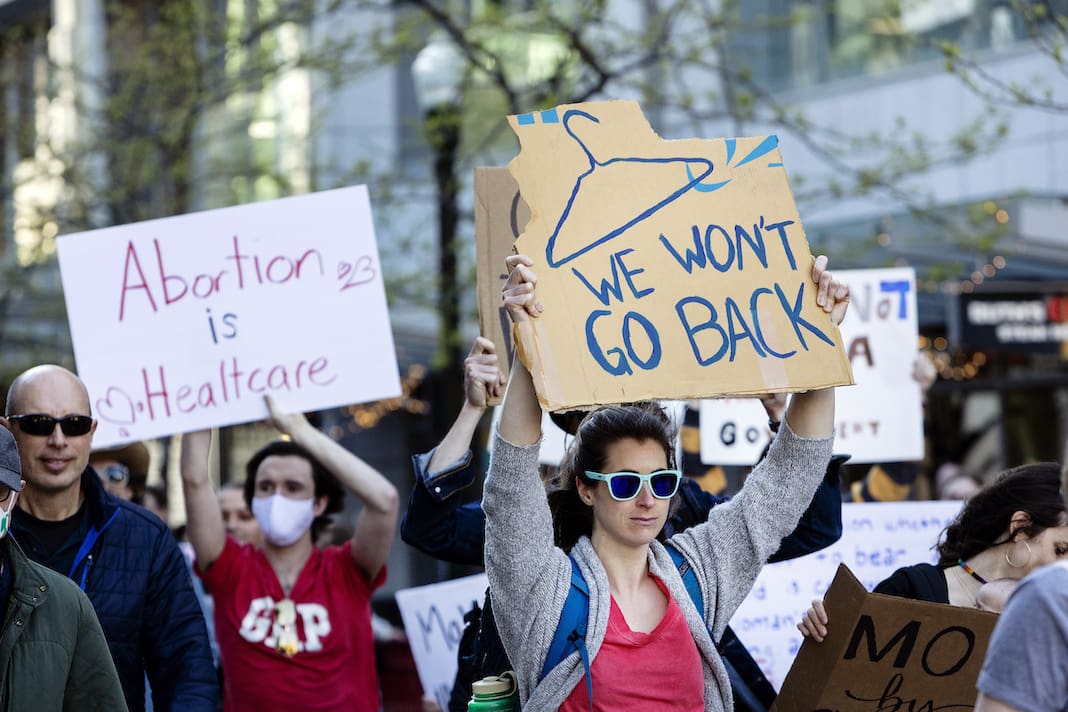Distance to abortion clinics is a barrier for many who seek care, study confirms
If the Supreme Court overturns Roe v. Wade, 26 states stand ready to enact bans that will require people to travel long distances to see abortion providers.

For years, researchers at pro-abortion rights organizations have been sounding the alarm about the drastically increased time required for people to travel to obtain reproductive health care services when abortion is restricted or banned. Now a new study has confirmed that “travel distance to abortion facilities may be an important barrier to abortion access in the US.”
The study, conducted at the UC Berkeley School of Public Health and published by JAMA Network Open on May 13, looked at what happens when people seeking an abortion live more than 50 miles from a clinic. With 26 states standing ready to ban abortion if the Supreme Court overturns Roe v. Wade, more people face the likelihood of being farther from any available clinics.
The analysis found that most people travel under 25 miles for an abortion. Many, though, have to travel over 50 miles, particularly in rural areas. For example, in a census area in the western part of Alaska, more than half the people live over 700 miles from a clinic. In several Midwestern states — Kansas, Nebraska, North Dakota, and South Dakota — there are areas that are currently at least a four-hour drive away from any abortion provider.
States that appear poised to ban abortion are concentrated in the Midwest and the South. As Robin Marty, author of “A Handbook for a Post-Roe America,” explained to the Cut in 2020, “I think it’s fair to say we’re going to see abortion is completely illegal except for the West Coast, which is on fire, the Northeast, and then basically Colorado, Minnesota, Illinois, and New Mexico.”
The Berkeley study aimed at pinpointing a relationship between distance and inability to obtain an abortion. Researchers used data from the large-scale Google Ads Abortion Access Study, which recruited pregnant people when they used Google to search for abortion terms. Respondents answered questions about demographics, gestation, and the certainty of their desire to obtain an abortion. They were then asked to participate in a follow-up survey four weeks later in which they were asked if they were still pregnant and whether they had had difficulty accessing abortion care.
Using the Google Ads study data, the UC Berkeley researchers learned that nearly half of the people who indicated in the initial survey they were considering abortion had obtained one by the four-week follow-up mark, 32% were still trying to obtain an abortion, and 20% had decided against an abortion. Researchers further found that those study participants who lived over 50 miles from a clinic had double the odds of still being pregnant and still trying to get an abortion than those who lived less than 5 miles away.
As distances to clinics increase dramatically, then, sure to be the case if the leaked Supreme Court Dobbs v. Jackson Women’s Health Organization draft opinion that would overturn Roe holds, access to abortion decreases dramatically. A decrease in access to abortion providers, the study authors point out, likely leads to higher instances of self-managed abortions and of unplanned pregnancies. It can also lead to higher levels of maternal morbidity and mortality. The United States already has one of the highest rates of maternal mortality among high-income developed countries.
The expansion of medication abortion, particularly when it is able to be prescribed via telehealth, can help address restrictions on physical access to abortion providers. Late last year, the Biden administration eliminated an FDA rule that banned medication abortion pills from being sent through the mail.
However, several state legislatures have moved to require that those seeking abortion pills obtain them in person from a medical facility, functionally reinstituting the FDA rule at the state level.
Published with permission of The American Independent Foundation.
Recommended

Trump leaves door open to banning medication abortion nationwide
Donald Trump is planning to release more details in the weeks ahead about how his administration would regulate access to medication abortion, according to comments he made during a lengthy interview with Time magazine published Tuesday.
By Jennifer Shutt, States Newsroom - April 30, 2024
Ohio doctors fear effects of emergency abortion care case set to go before U.S. Supreme Court
A federal law that allows emergency departments to treat patients without regard to their ability to pay will be under U.S. Supreme Court scrutiny this week, and Ohio doctors are concerned about the case’s local impact on emergency abortion care.
By Susan Tebben, Ohio Capital Journal - April 23, 2024
Biden on abortion rights: President expects to give speech Tuesday on new Florida 6-week ban
‘Having the president of the United States speaking out loud and with confidence about abortion access is a great thing’
By Mitch Perry, Florida Phoenix - April 22, 2024








































































